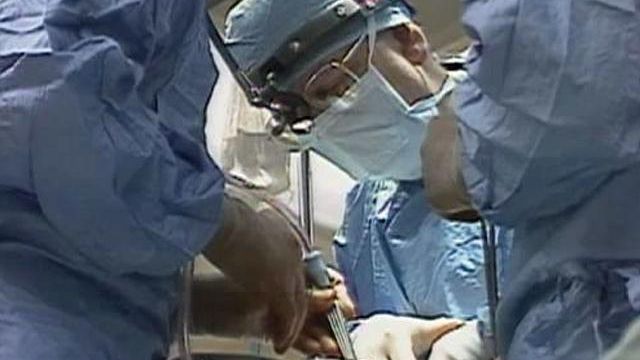Screening for prostate cancer might not save lives
Two major studies raise questions about the efficacy of screening for prostate cancer and whether treatment for the disease does more harm than good.
Posted — UpdatedTwo major studies raise questions about the efficacy of screening for prostate cancer and whether treatment for the disease does more harm than good.
More than 186,000 men will be diagnosed with prostate cancer in the U.S. this year, and nearly 29,000 will die from it.
Although doctors stress the importance of early detection through screening, researchers found that the test saves few lives. It might also lead to risky and often unnecessary treatment.
"Even if you are screened and found to have prostate cancer, you don't automatically have to be treated," Dr. Ronald Ennis, a radiation oncologist at St. Luke's Roosevelt Medical Center in New York, said.
Unlike most cancers, many prostate tumors grow so slowly that the patient is likely to die of other causes before the tumor becomes a threat.
Ennis said that screening for the prostate specific antigen doesn't always answer a key question. "It doesn't really help us with, 'Is this cancer life-threatening or not?'" he said.
A biopsy must be done to confirm if there is a tumor and to determine how aggressive the cancer is.
Treatments range from surgery to hormone therapy to radiation. All of those can lead to serious side effects, including "incontinence, losing control of urine and sexual problems," Ennis said.
Researchers said that patients need to weigh the risk of therapy against the risk of cancer, because if the tumor isn't aggressive, they might not need any treatment at all. However, if a person has an aggressive tumor, testing can lead to life-saving treatment.
Doctors said that work is under way on tests that should more accurately detect prostate cancer and determine how aggressive it is. That, they said, would make treatment decisions easier for patients.
• Credits
Copyright 2024 by Capitol Broadcasting Company. All rights reserved. This material may not be published, broadcast, rewritten or redistributed.





